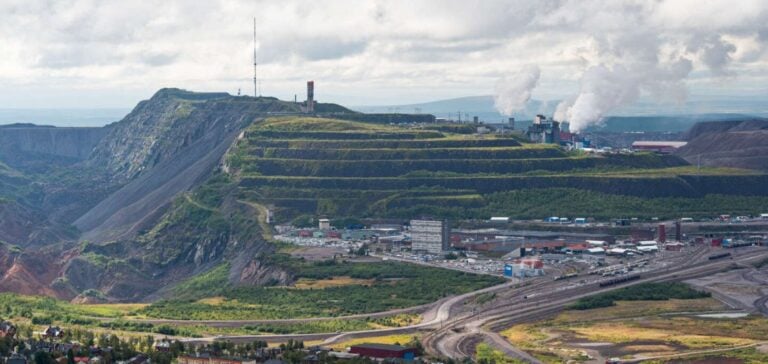Europe faces major challenges in its quest to increase the production of rare earths, essential for the green energy transition. Despite the ambitious targets set by the New Critical Raw Materials Act (CRMA), production forecasts show that Europe may not meet them by 2030. China currently dominates the global rare earths market, producing 98% of the permanent magnets used in the EU, needed for electric vehicles (EVs) and wind turbines.
Challenges facing European production
Solvay’s rare earths processing site at La Rochelle, once one of the largest in the world, illustrates the difficulties facing Europe. While production at this site has plummeted in recent decades, Solvay is looking to revive its activities to meet the growing need for rare earths for permanent magnets. However, reaching the target of supplying 20-30% of European demand by 2030 seems ambitious. The EU has set clear targets: 10% of annual requirements for critical minerals must be extracted, 25% recycled and 40% processed on European soil by 2030. However, current production and ongoing projects are not enough to close the gap between supply and demand. Obstacles include public opposition to new mines, limited funding and continued dependence on Chinese imports.
The importance of rare earths for the energy transition
Rare earths are essential for the manufacture of permanent magnets, which play a crucial role in EV motors and wind turbines. The EU forecasts that demand for rare earths for these magnets will increase sixfold by 2030 and sevenfold by 2050. However, the lack of mining projects and slow authorization processes are undermining these ambitions. For example, the Norra Karr project in Sweden has been on hold for ten years due to environmental concerns. Industry players also stress the need for greater supply chain integration. At present, few European projects cover the entire process, from mining to the production of metals and alloys. Neo Performance Materials, for example, is developing a permanent magnet plant in Estonia, but production remains limited in relation to projected needs.
Prospects and potential solutions
To achieve its objectives, Europe must not only increase its production of rare earths, but also strengthen its recycling and processing capacities. The support of governments and automakers will be crucial in making these projects economically viable. Initiatives such as speeding up permitting processes and increasing investment in research and development could help overcome these challenges. Despite the obstacles, some experts remain optimistic. Sweden’s Deputy Prime Minister, Ebba Busch, said that Sweden could lead this initiative in Europe. In addition, companies such as Solvay and Neo Performance Materials continue to develop projects aimed at boosting European rare earth production. However, without concerted action and substantial investment, the EU risks remaining dependent on China for these critical materials.
### Long tail
European production of rare earths
### Meta-description
Europe is struggling to increase its production of rare earths essential for the energy transition, facing environmental, economic and regulatory challenges.
### Countries listed
China, Europe, Sweden, Norway, Finland
### Companies and organizations mentioned
Solvay, Neo Performance Materials, LKAB, Leading Edge Materials, Rare Earths Norway, GKN Powder Metallurgy, Magneti Ljubljana
### Tags
Solvay, Neo Performance Materials, LKAB, Leading Edge Materials, Rare Earths Norway, GKN Powder Metallurgy, Magneti Ljubljana, rare earths, energy transition, permanent magnets, electric vehicles, wind turbines, CRMA, Europe, China
### Theme
Sector innovation
### Photo ideas
1. Image of a rare earths processing plant with workers handling equipment.
2. Aerial view of a European mining site with heavy equipment and processing infrastructure.






















